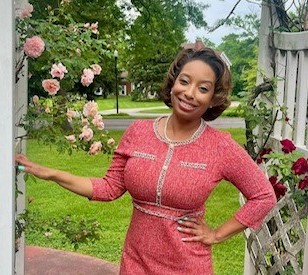Breaking Barriers and Building Trust: An Interview with Dr. Kendra Holmes
EDITOR’S NOTE: Dr. Holmes was recently interviewed by the Missouri Primary Care Association (MPCA). This article was published in its June 12, 2024 email newsletter.
Dr. Kendra Holmes is the President & CEO of Affinia Healthcare as of January 1, 2023. This role is historic for two reasons: Dr. Holmes is the first woman to lead Affinia as well as the first Black person to be selected as the organization’s President and CEO in its 117-year history.
Dr. Holmes joined Affinia Healthcare in 2003 as a pharmacist and worked her way to the organization’s Executive Vice President and Chief Operating Officer. She also spearheaded the health center’s most recent Joint Commission review which resulted in a Gold Award for its ambulatory care.
Dr. Holmes received her bachelor’s and doctorate degrees in pharmacy at the University of Health Sciences and Pharmacy in St. Louis. She is also the recipient of the Community Health Centers Executive Management Fellowship from the Kansas University Medical Center.
Dr. Holmes – what motivates you in this job?
My philosophy is that healthcare is a right for everyone not a privilege. The community of under-served people that Affinia is working every day to help is what inspires me daily.
What is your vision for Affinia Healthcare in the next 5-10 years?
More expansion! Laughing. Actually, our goal is to change the narrative and culture around healthcare in underserved communities. There is fear and a lack of trust, especially in the Black communities we work with. Access isn’t always the problem. If we can change the narrative, we can truly improve health outcomes.
What do you see as your biggest challenge?
Beyond lack of trust, it’s Medicaid redetermination. We worked so hard to get Medicaid expansion and now that the redetermination process has started, we are seeing thousands of people losing coverage – and the main groups being impacted are women and children.
What is Affinia Healthcare’s brightest opportunity?
Our brightest opportunity is that Affinia is trusted in the under-served communities in St. Louis. We have the ability to reach people and help them gain and keep trust, not just in our organization but the entire healthcare system.
What has been the most significant learning experience in your career?
During the COVID-19 pandemic – Affinia prioritized people of color- which was necessary given that minority communities were some of the hardest hit by the effects of the pandemic. Affinia was able to put a monoclonal antibody infusion therapy center in St. Louis City to provide treatment for COVID-19 during a time when resources for that kind of care were scarce. While we talk about health equity and eliminating disparities, it was a major learning experience to deal with the backlash that occurred with more affluent communities when we put our words into action.
What legacy do you hope to build for your organization?
In Affinia’s 117-year history, I am the first Black person and first woman to lead this organization. My legacy should be, I am not the last. My vision is to be constantly working to develop and mentor the next set of leaders who will go on to do bigger and better things.
Tell us about your family.
I get my passion for humanity from my mother. I am a people person and the people in my family are all in professions that help others. One of my sisters is a nurse, and the other a teacher and we all learned from our mother how important it is to take care of others.
Is there anything you would like to add?
The thing that keeps me up at night is rural Missouri. Affinia’s centers are all urban – but rural Missouri has the same needs and barriers as we do, and they are not getting the attention and support they need either. There is an impression that the issue is around race, but in fact, the division is truly about poverty and lack of resources. We have to do better and bridge the divide between urban and rural communities in the state.


